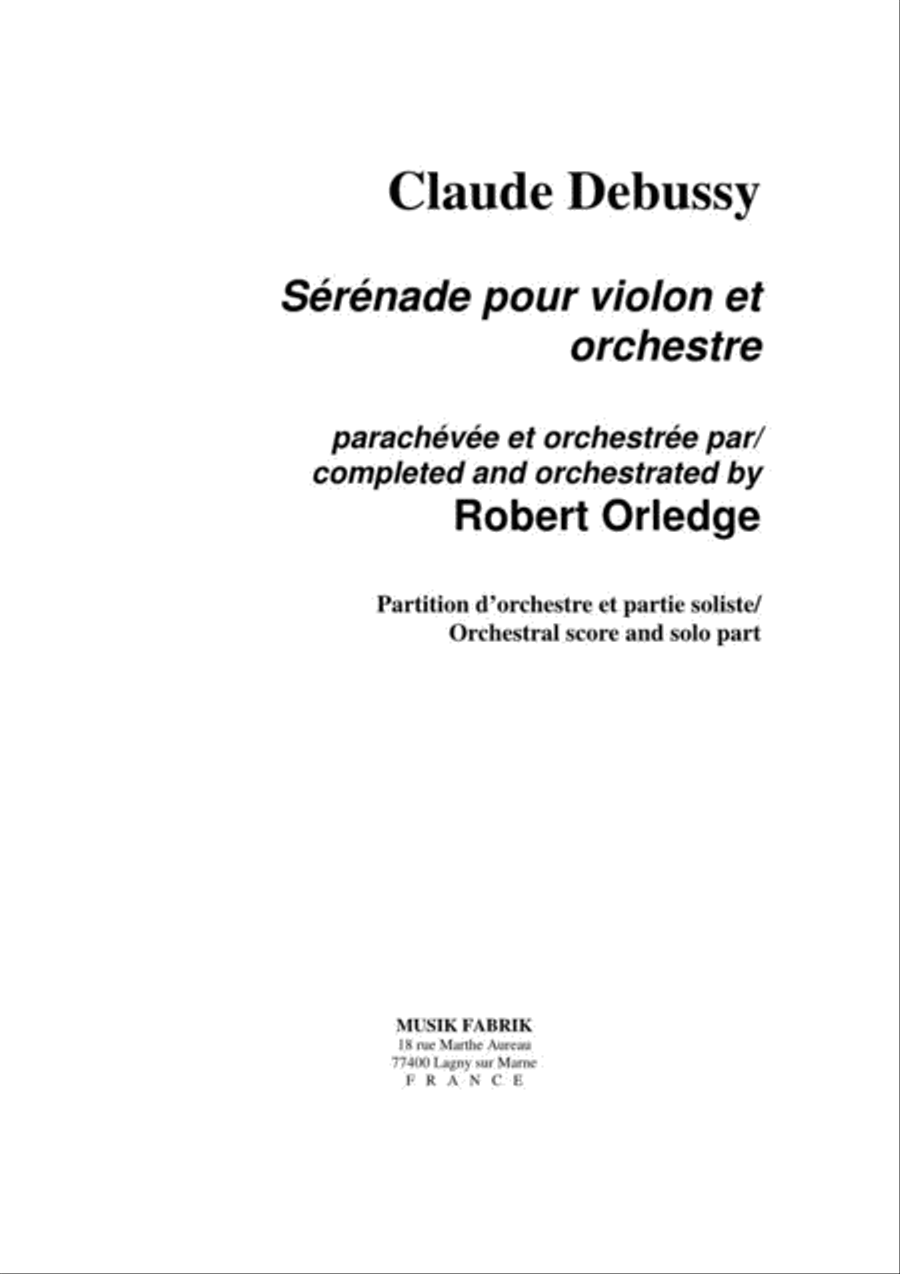Serenade by Claude Debussy Orchestra - Sheet Music
By Claude Debussy

4 to 6 weeks
Original Price: $26.23
Price: $24.92
You save: $1.31 ~ 5%
{ "catalogRefId":"21543881", "productId":"prod21543881" } Add to Cart { "catalogRefId":"21543881", "productId":"prod21543881" }
2+ Pricing
-
Save on Multiple Copies
Order two or more copies of the same title and we'll automatically give you 5% off list price on that title.
To get 2+ Pricing , just add two or more copies of a title to your shopping cart. Your discount will be immediately applied to your order.
-
Sale titles, hymnals, and ShowKits (MTI's Broadway Junior Collection, Getting to Know... Collection (G2K) and MTI's Kids Collection) do not qualify for 2+ Pricing
If you have any questions or comments regarding 2+ Pricing , please feel free to email us at info@sheetmusicplus.com
Product Added to Cart
The item has been added to your cart.

